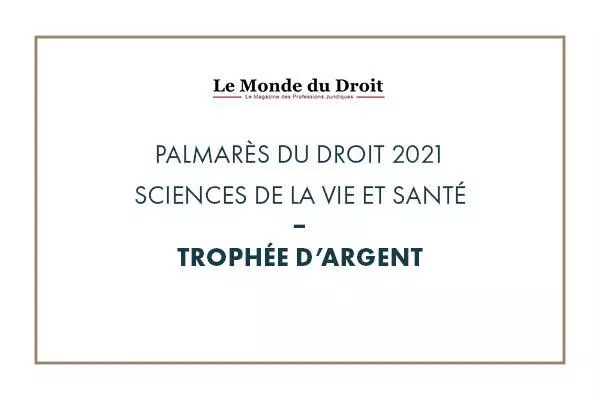The medical file, sacred property of the patient
1 November 2022
Everyone has the right to have access to their health data, and more specifically to their medical records.
Thus, Article L.1111-7 of the Public Health Code clearly states that:
“Everyone shall have access to all information concerning his or her health held, in whatever capacity, by health professionals, by health institutions (…) which are formalised or have been the subject of written exchanges between health professionals, in particular examination results, consultation, intervention, exploration or hospitalisation reports, protocols and therapeutic prescriptions implemented, monitoring sheets, correspondence between health professionalsthe information should not include information that has been collected from or about third parties not involved in the provision of therapeutic care.
She may have access to this information directly or through the intermediary of a doctor whom she designates and obtain communication of it, under conditions defined by regulation, at the latest within eight days of her request and at the earliest after a cooling-off period of 48 hours has been observed. This period shall be extended to two months where the medical information is more than five years old or where the matter is referred to the departmental commission for psychiatric care pursuant to the fourth paragraph. When the adult is the subject of a legal protection measure with personal representation, the person in charge of the measure has access to this information under the same conditions. Where the adult is subject to a legal protection measure with assistance, the person in charge of the assistance may access this information with the express consent of the protected person.
(…)
Subject to the objection provided for in Articles L. 1111-5 and L. 1111-5-1, in the case of a minor, the right of access is exercised by the person or persons with parental authority. At the request of the minor, this access takes place through a doctor.
In the event of the patient’s death, access to the patient’s medical file by the rightful claimants, the cohabitant, the partner linked by a civil solidarity pact or the doctor taking charge of a person likely to be the subject of an examination of genetic characteristics under the conditions provided for in I of Article L. 1130-4 shall be carried out under the conditions provided for in the last two paragraphs of V of Article L. 1110-4.
On-site consultation of the information is free.
This article therefore confirms the right of every person to access their medical file.
However, there is no single medical file insofar as each practitioner with whom the patient is in contact will have a medical file: hospital, clinic, private doctor, specialist, etc.
A patient who wishes to recover all of his or her data will therefore have to contact all of the health professionals who have been involved in his or her health care, and ask each of them for the file containing the information related to his or her care, and the health professional concerned.
Many documents are available to the patient concerned, including
- Examination results
- Reports of consultation, intervention, exploration or hospitalisation
- Protocols and therapeutic prescriptions implemented
- Monitoring sheets
- Correspondence between health professionals.
On the other hand, some documents may not be communicated to the patient or his/her representatives:
- Information collected from third parties not involved in treatment
- Information about the intervening third party, such as a family member,
- Some notes from health professionals may be considered personal.
However, any document contributing to the elaboration or follow-up of the diagnosis should be communicated, as well as documents related to the treatment or a preventive act.
This right thus also applies in all circumstances, and in particular in the context of medical expertise, in matters of personal injury.
The Court of Cassation recently ruled that the victim was entitled to obtain from the insurance company communication of the technical notes drawn up by the insurance doctor during the expert appraisal, insofar as these notes contained medical elements and the patient has a right of access to his or her health data.
Cass. 2nd civ., 30 Sept. 2021, n° 19-25.045,
“It follows from Article L. 1111-7 of the Public Health Code that it is the responsibility of the the insurer’s medical advisor, who is responsible for carrying out an expert assessment of a victim, to communicate to the victim information relating to his or her health, collected during the expert assessment, which is formalised or has been the subject of written exchanges between health professionals, on the other hand, the insurer to whom the medical advisor has communicated information relating to the victim’s health to ensure that this doctor has communicated this information to the victim.
Consequently, a judgment which dismisses the insured’s claim under Article 145 of the Code of Civil Procedure, of communication of the technical notes drawn up by the insurer’s medical advisor, containing medical elements, whereas the latter had a right of access to the health data concerning him contained in these technical notes and consequently justified a legitimate interest in obtaining them from the insurer.
More recently, the First Civil Chamber of the Court of Cassation ruled on 5 October 2022 (Appeal no. 21-12.542) that the medical expert who had been given dematerialised documents by the parties, necessary for the accomplishment of his mission, had to return them to them at the end of his mission.
The fact of not having kept the said documents constituted a fault on the part of the doctor on the basis of Articles 1240 and 1241 of the Civil Code, as well as Article 243 of the Code of Civil Procedure.
“It follows from Articles 1382 and 1383, now 1240 and 1241, of the Civil Code, and 243 of the Code of Civil Procedure that the expert is provided by the parties with the documents necessary for the accomplishment of his mission and that at the end of his operations, it is incumbent upon him, unless the parties waive their right to do so, to return to them the documents that are not dematerialised.
After noting that the expert did not dispute that he had received the documents necessary to carry out the measurement, and that he had not been able to return them, the Court of Appeal rightly deduced that by divesting itself of the medical documents submitted by Mr [R] [D] and Ms [N] [D] without securing their agreement, the expert had committed a fault. “
The right of access to medical information contained in each patient’s medical file is therefore a protected right, which may involve, depending on the case, the responsibility of the health professional or institution that does not respect this right.





